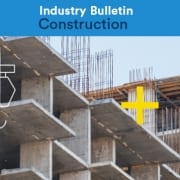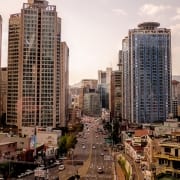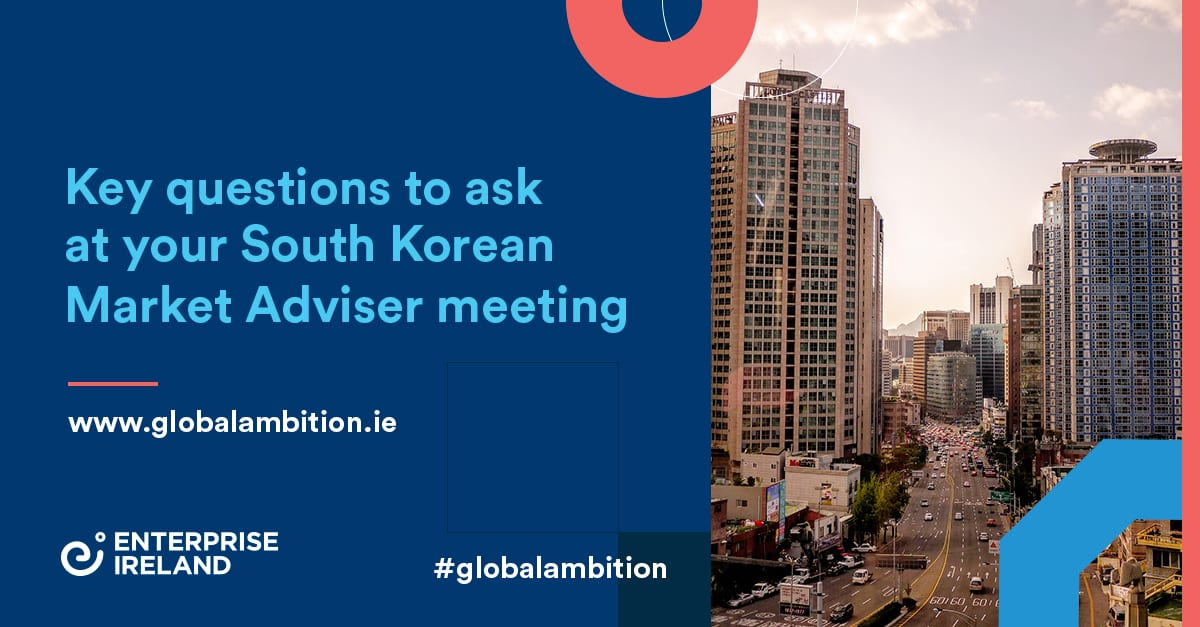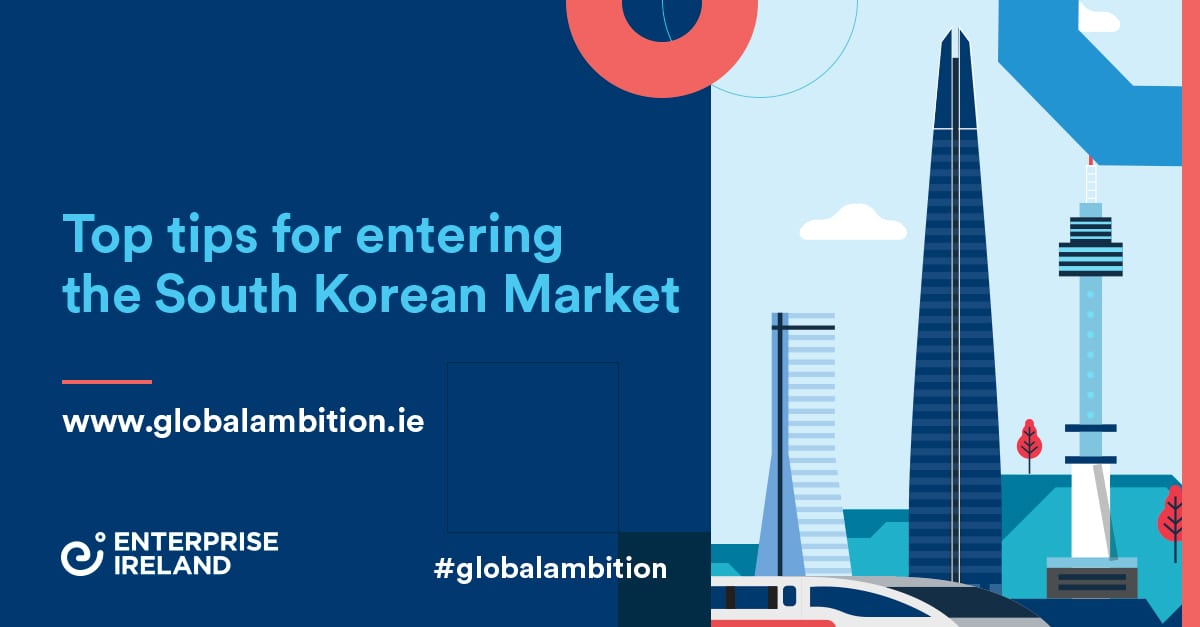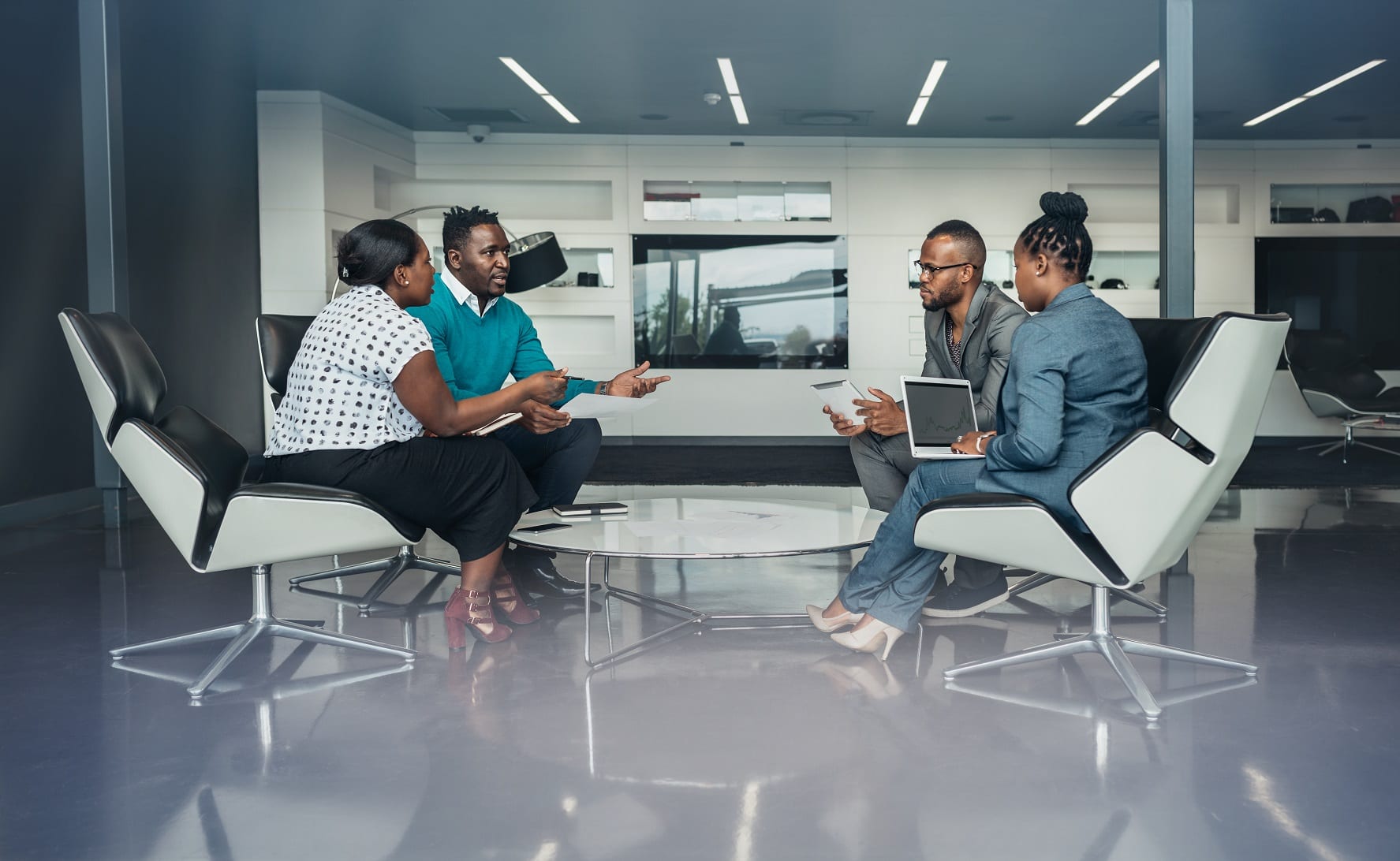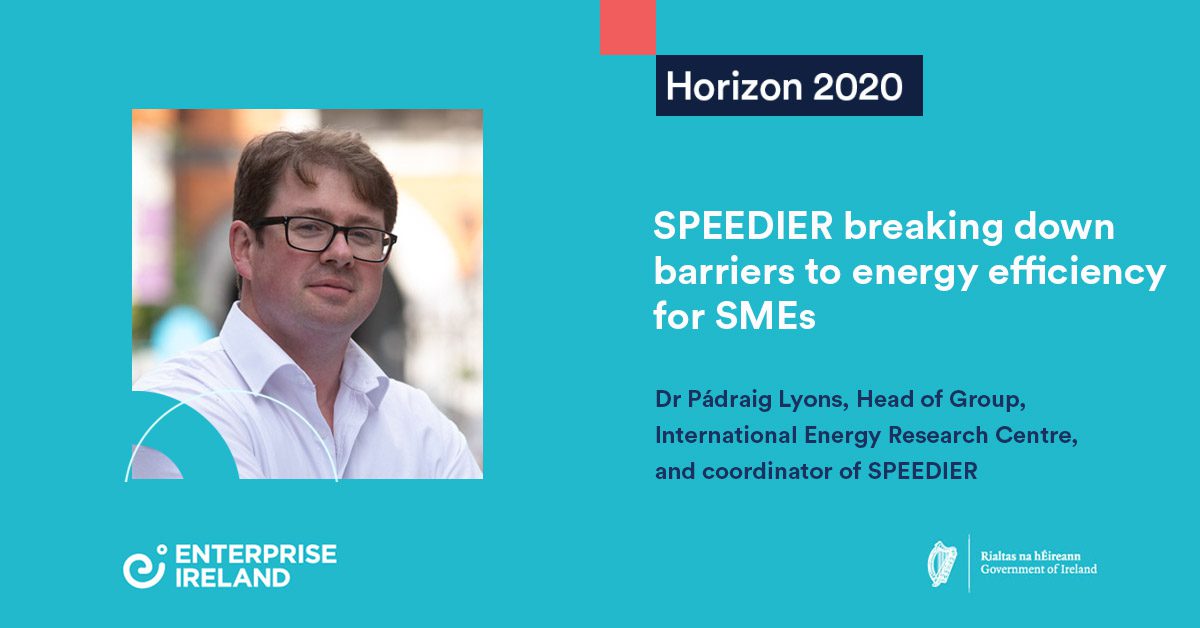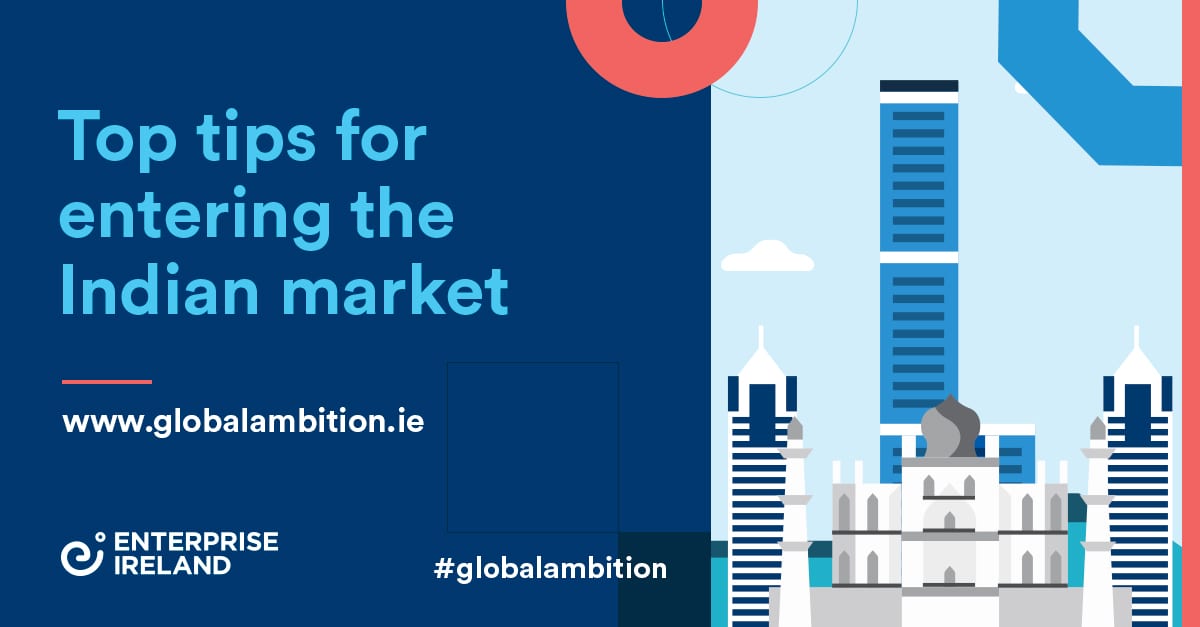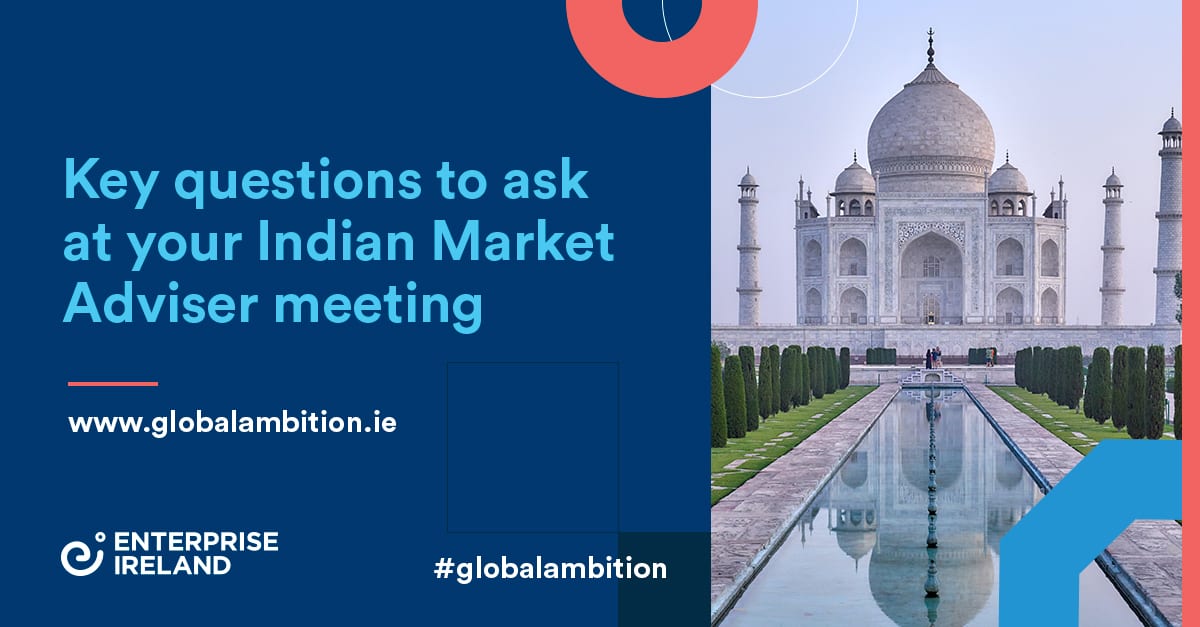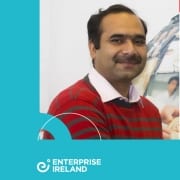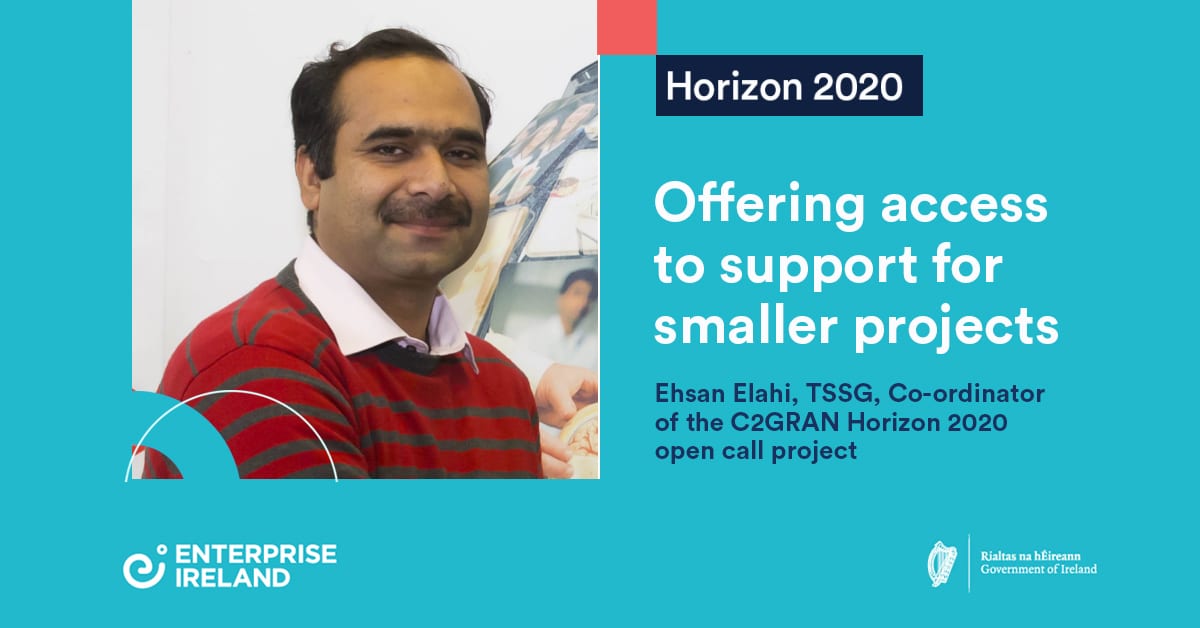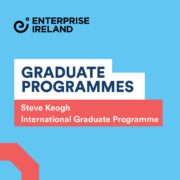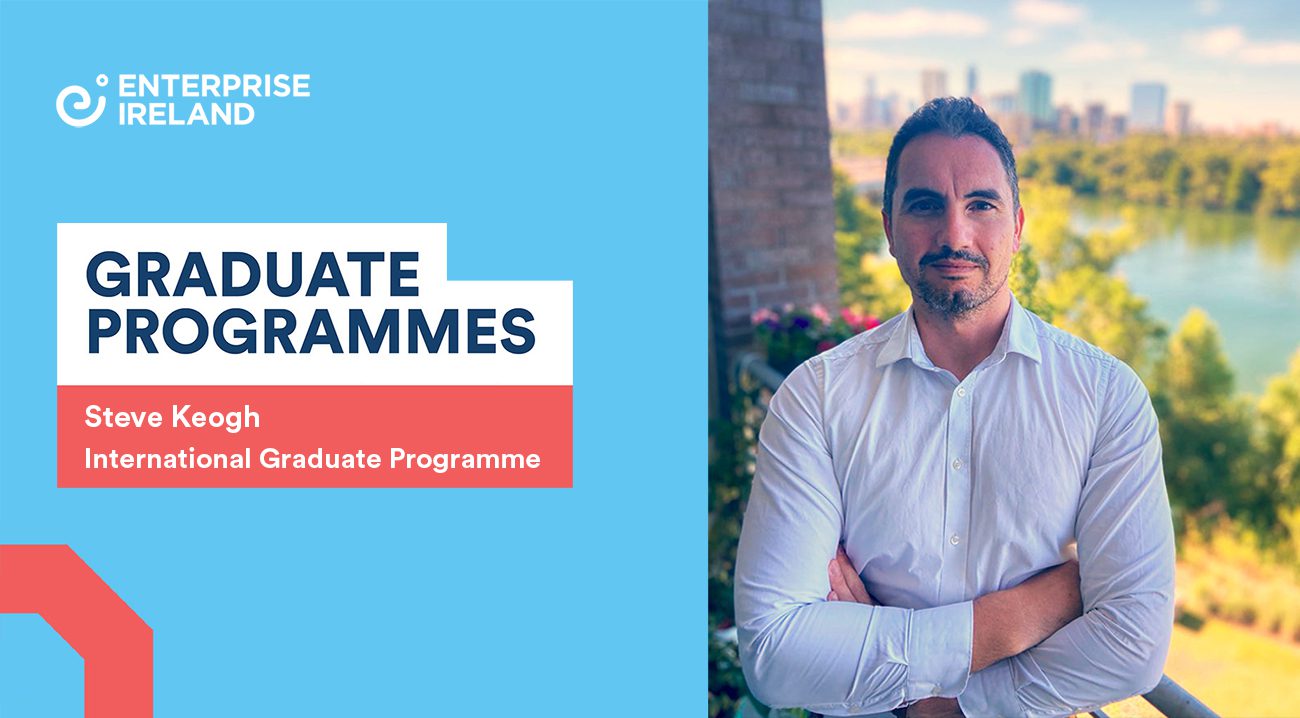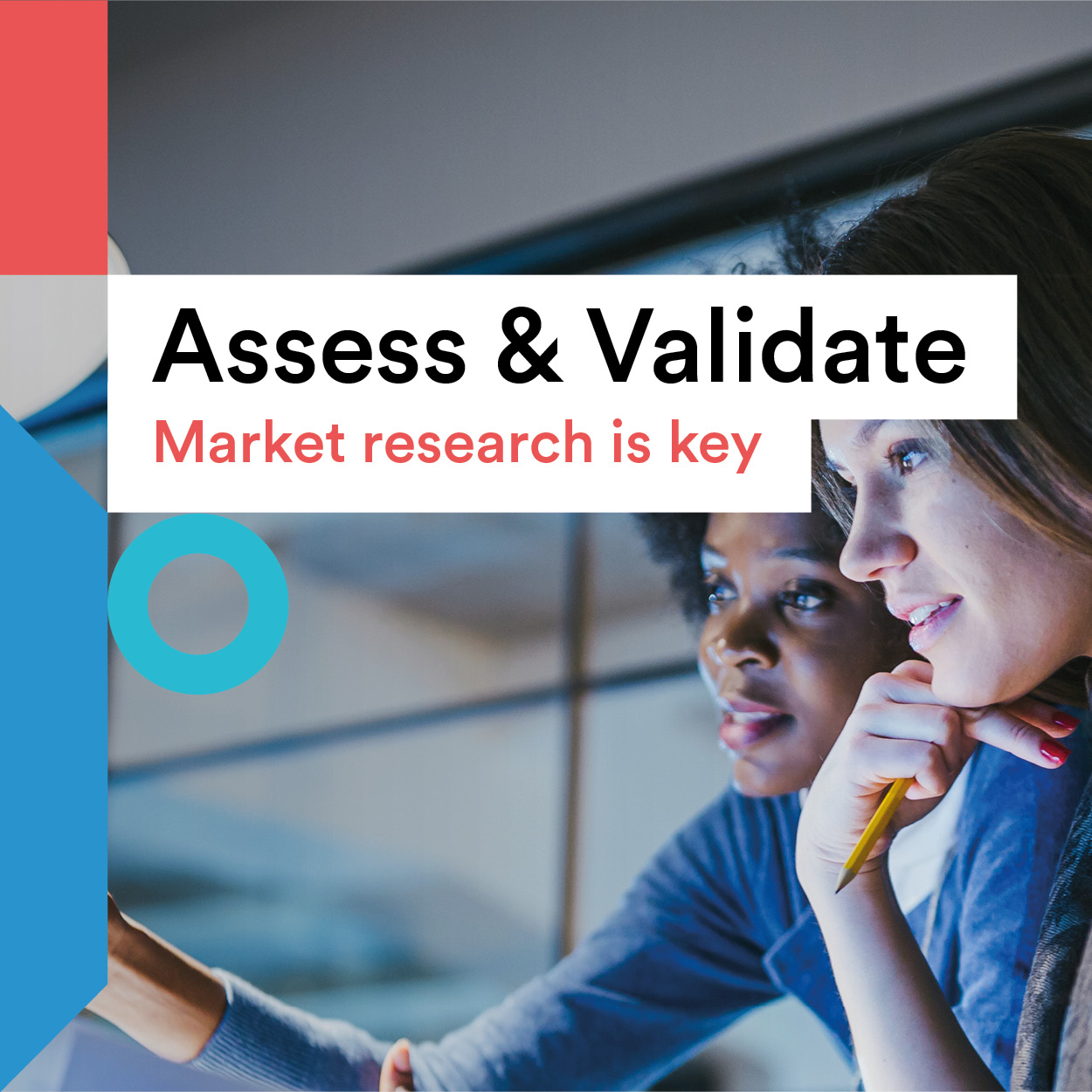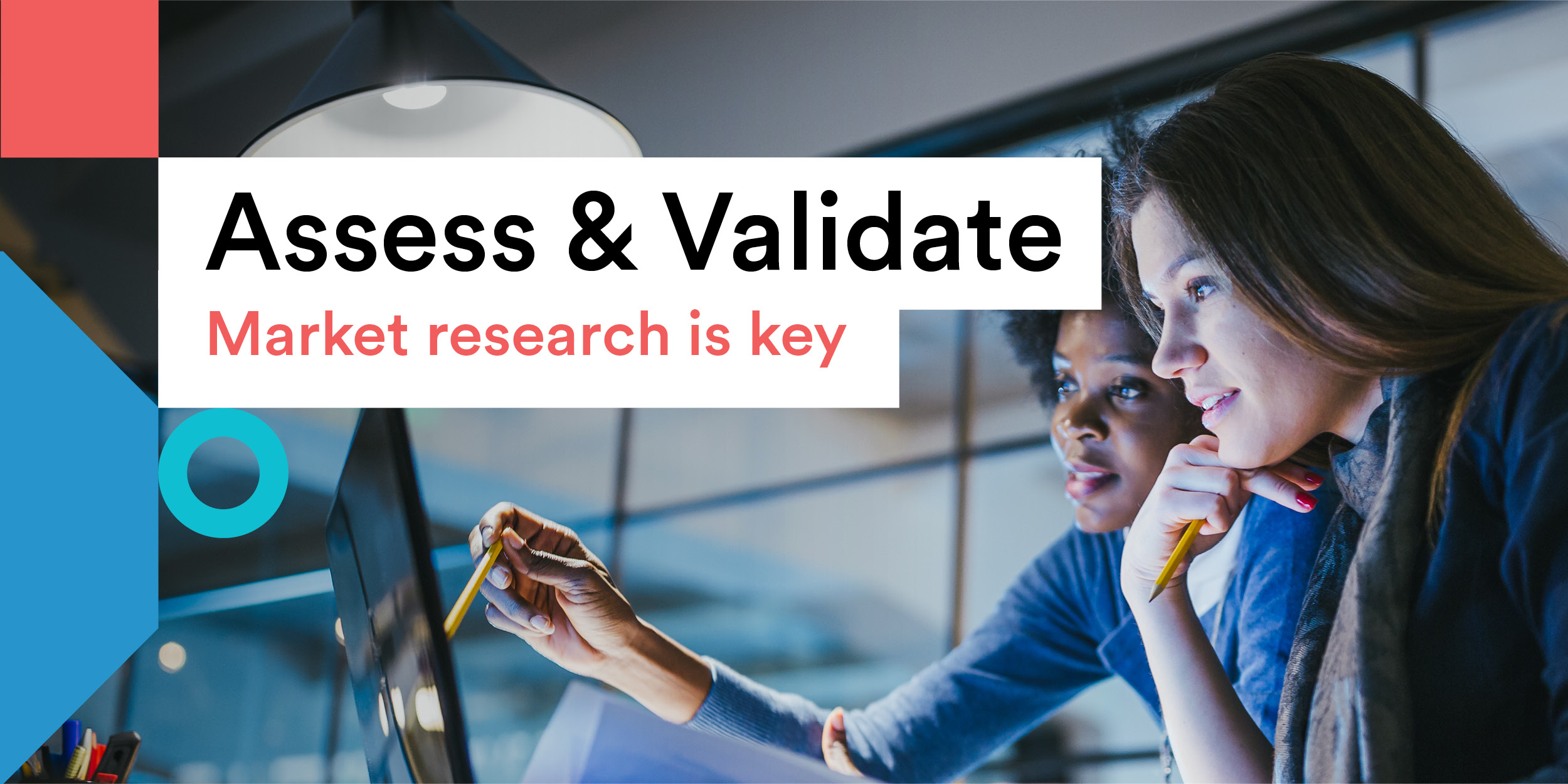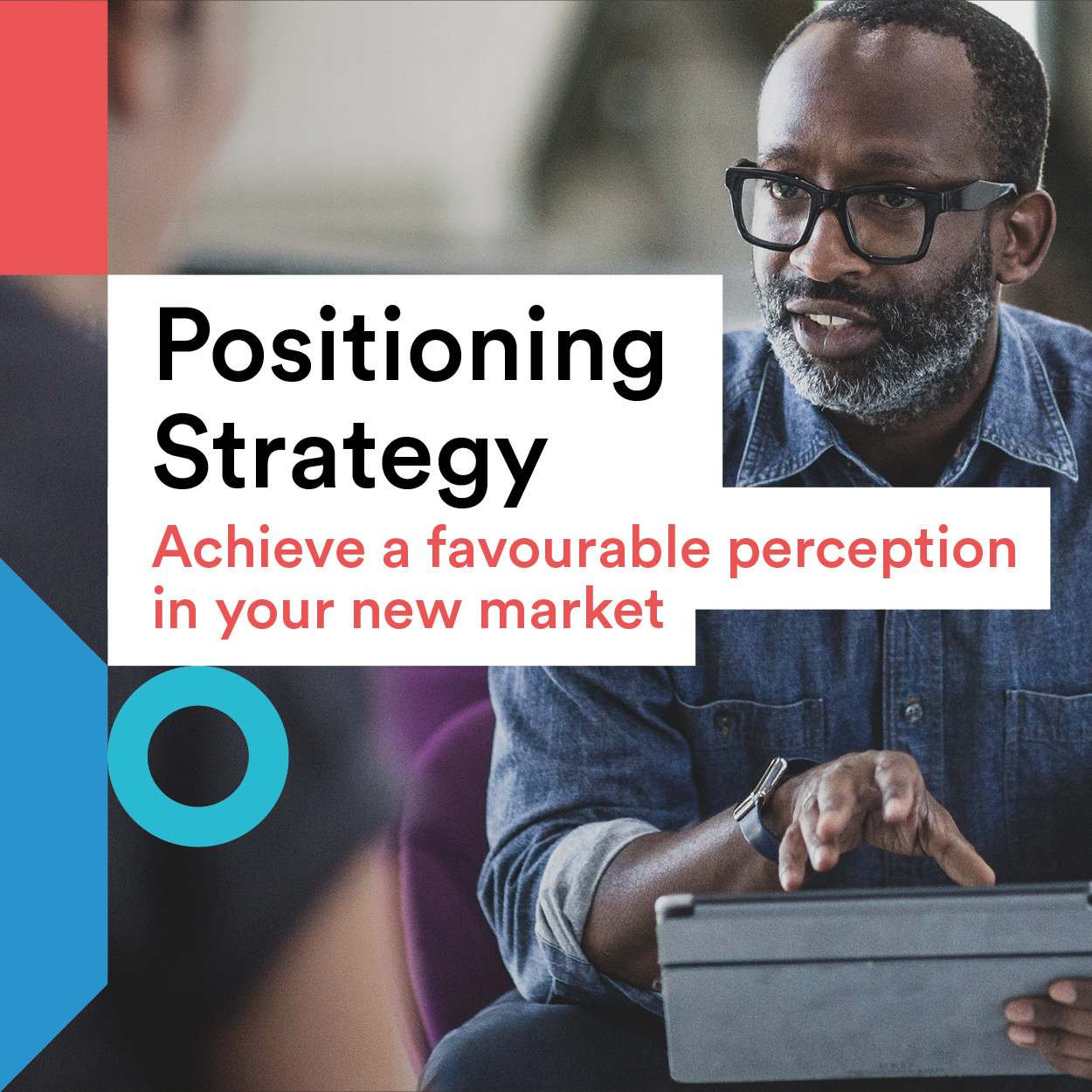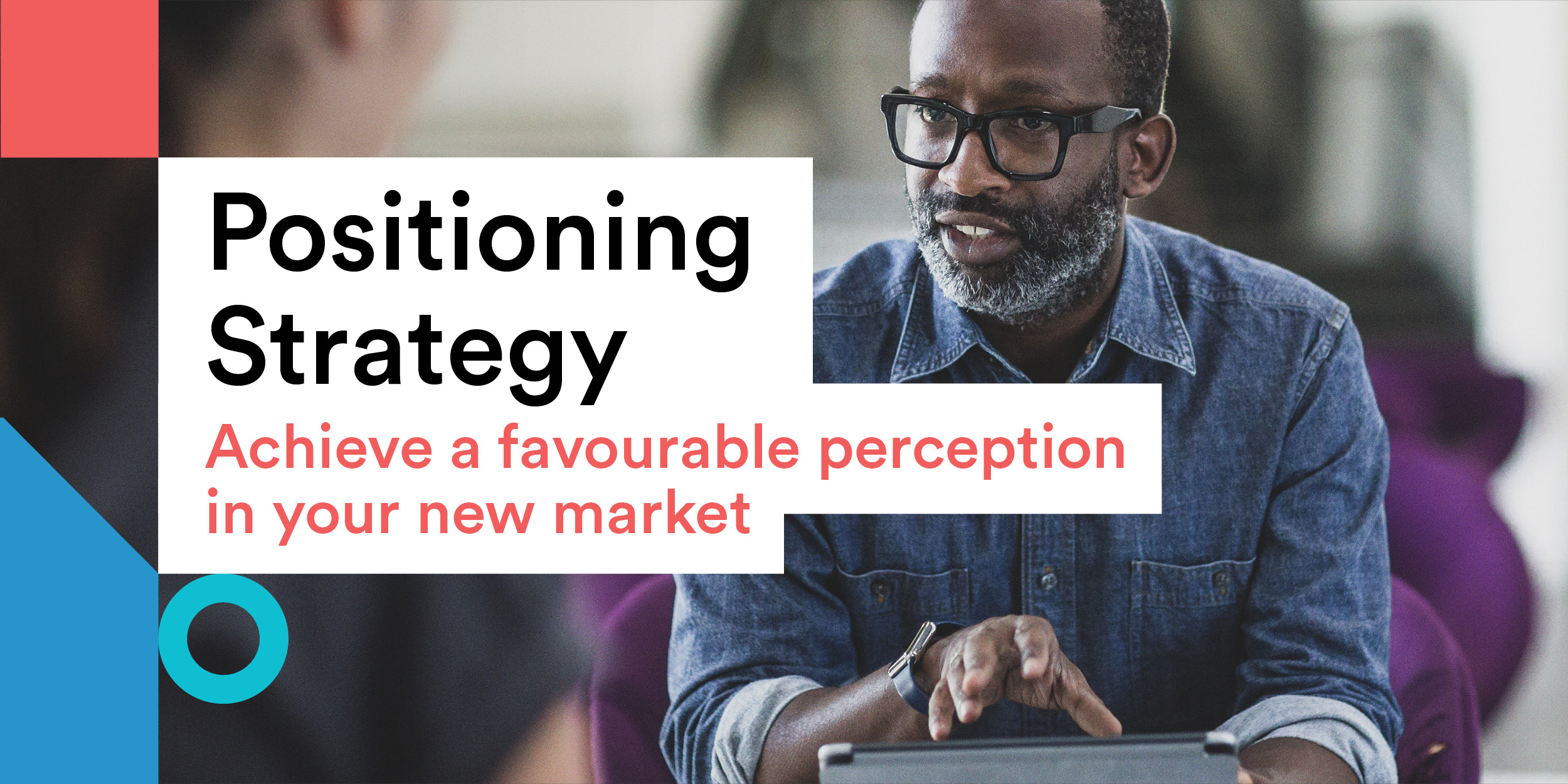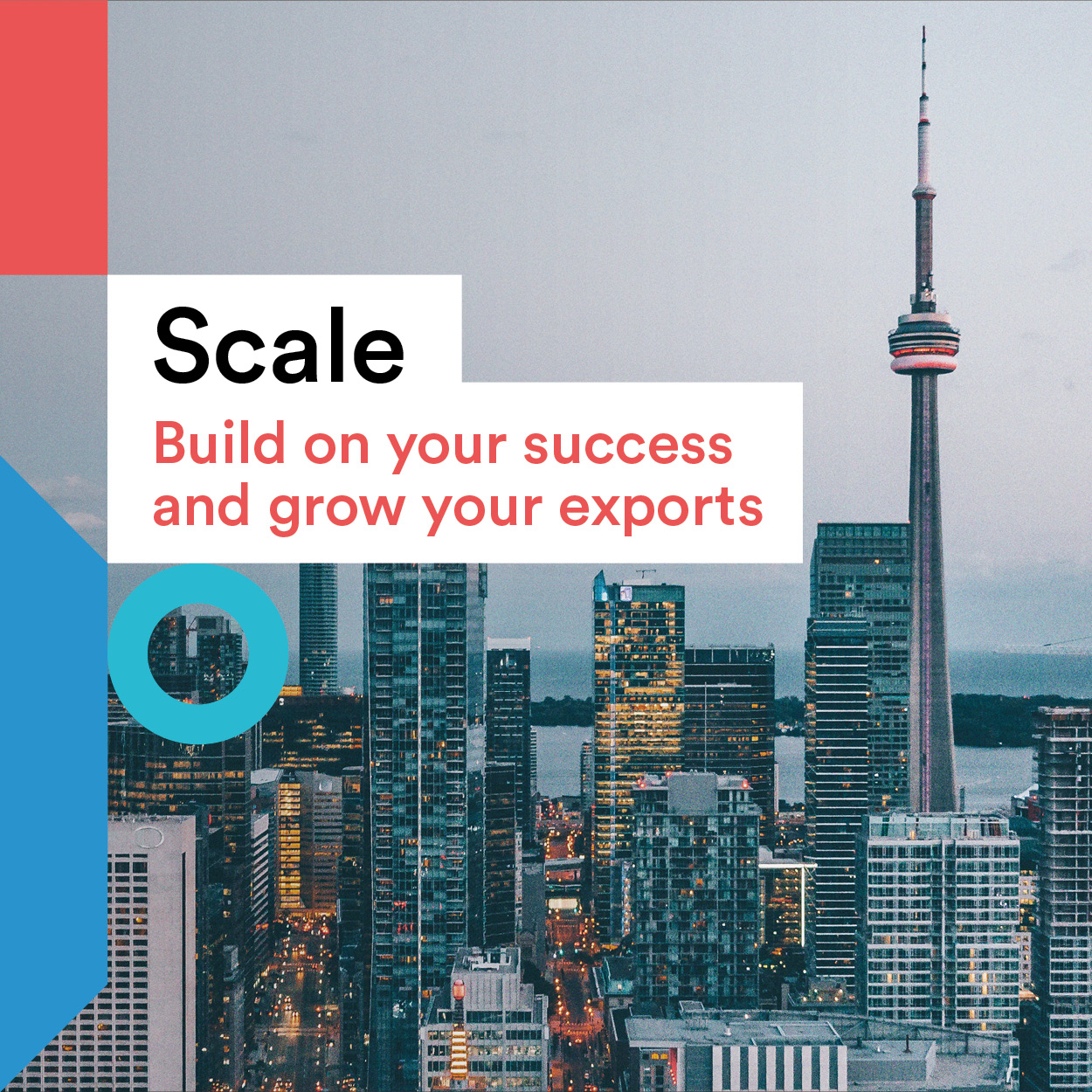Supporting Regional Development Critical To Future Jobs Growth
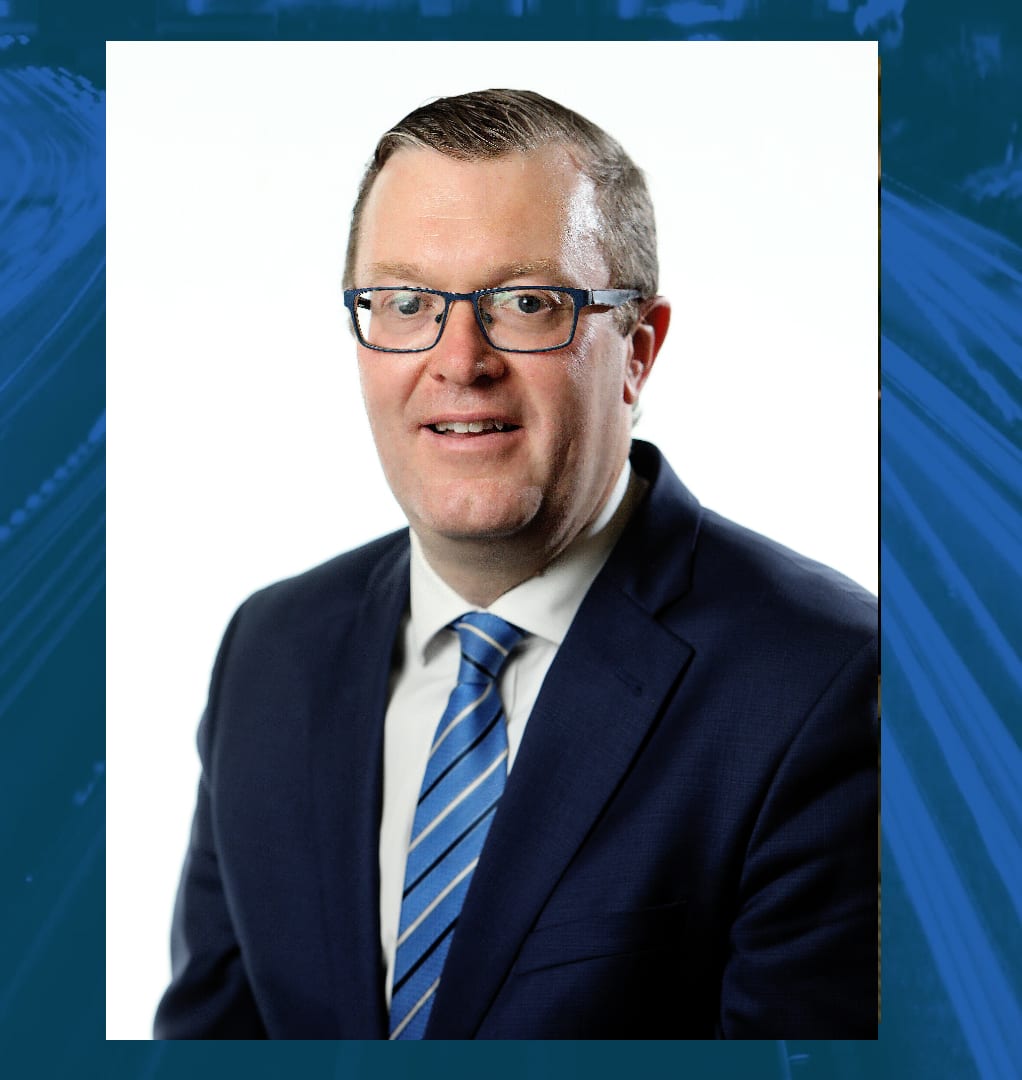
Resilience is a word we became used to in 2020 and it is an apt term to describe how Irish business responded to the dual challenges of the Covid-19 pandemic and the end of the Brexit transition period.
For thousands of businesses across Ireland, and their staff, it has been a tough, challenging year marked by disruption and uncertainty. But what has been remarkable is how Irish businesses have responded to the impact of Covid-19 and Brexit.
At Enterprise Ireland we work closely with the Irish manufacturing, export and internationally traded services sector. We invest in established companies and start-ups, we assist companies to begin exporting or expand into new markets and we back research and development projects creating future jobs.
This week we launched our annual review for 2020. The good news is that the companies we are proud to support employ more than 220,000 in Ireland. Despite the challenges faced in last year, nearly 16,500 new jobs were created, closely mirroring the 2019 outturn.
However, job losses were significantly higher than in previous years, resulting in a net reduction of 872 jobs across the companies we support.
There is no sugar coating the fact that it was a tough year for business. However, behind these statistics are individual stories of companies taking brave decisions to change their business model, reimagine their product offering and find new ways of doing business and connecting with customers to trade through the impact of Covid-19 and Brexit.
Enterprise Ireland has worked with these companies throughout the year to ensure viable companies have the liquidity, supports and advice they need to trade, and importantly, to sustain jobs.
Enterprise Ireland supported companies have a key role in the Irish economy. 65% of employment is outside the Dublin region and these indigenous Irish companies, many of which are world leaders in their field, are critical to delivering balanced regional economic development.
Powering the Regions is Enterprise Ireland’s strategy for regional development. It outlines specific plans for each region in the country, drawing on their existing enterprise base, their connections with third level institutions and their unique potential for growth.
The strategy is backed significant funding. This time last year more than €40m was allocated, in a competitive call, to 26 projects fostering regional entrepreneurship and job creation.
These included the Future Mobility Campus Ireland, based in Clare, which explores the potential of autonomous, connected and electric vehicles, UCDNova’s Ag Tech innovation centre in Kildare and the Clermont Hub in Wicklow which focuses on content creation and draws on the region’s established film and audio/visual track record. The 26 projects were supported under the Regional Enterprise Development Fund, which has seen €100m invested in similar projects since 2017.
Given the potential impact of Brexit, particularly in the Border region, 11 similar projects designed to cluster expertise and innovation were supported with €17m in support under the Border Enterprise Development Fund in 2020.
These were strategic initiatives, closely linked to government regional policy, with a medium to long-term focus on supporting regional enterprise.
However, due to Covid-19, Enterprise Ireland moved last year to provide more agile interventions to regional businesses assist them to reset and recover.
Ensuring that viable companies had the access to finance was an important necessity. Through the government-backed ‘Sustaining Enterprise Scheme’ Enterprise Ireland allocated €124m last year to support more than 400 companies employing more than 10,000 people. The majority of this funding went to regionally based companies.
Similarly, €8.2m in funding for 95 enterprise centres, which are critical to the start-up ecosystem and future job growth regionally, was made available in September.
Retail business across Ireland also benefitted from the Online Retail Scheme which saw 330 retailers allocated €11.8m in funding to enhance their online offering, reach new customers and increase sales.
Through a mix of strategic funding aimed at long-term enterprise development and more agile funding supports Enterprise Ireland has helped to sustain jobs throughout Ireland in 2020. We’ve also supported those sectors, such as cleantech, construction and life sciences which continued to grow and create jobs last year.
The pandemic will have lasting effects including how we work and where we work. Many of these long-term changes can complement strong local and regional economies. A key element of the Powering The Regions strategy was the potential of remote working and co-working hubs that Enterprise Ireland is committed to developing with our partners. That potential has been accelerated by the changing work patterns evidenced in the past year. Now, more than ever, having a strategic approach to enterprise development is vital, and Enterprise Ireland looks forward to the role it can play as we recover and build for the future.
By Mark Christal, Manager, Regions and Entrepreneurship at Enterprise Ireland.
Key questions to ask at your South Korean Market Advisor meeting
South Korea is a large, vibrant economy with a myriad of opportunities for Irish firms.
If you are considering doing business in South Korea, your first step should be a call with our team in Seoul.
The questions below were designed to help Irish businesses get the best out of their first Market Advisor call
- Are there any local regulatory requirements I should be aware of for our goods or services to enter your market?
- Would my goods/services’ USP still be relevant in your market as in Ireland/other markets?
- If we were to work with local partners, would they usually require exclusivity from us given the business norm in your market?
- What would be the timeline, given your experience, of identifying local partners?
- Should I expect to commit myself to travel to your region to meet with prospective partners/customers in person?
Set up a call with our team in South Korea today and also be sure to download our Going Global Guide
Enterprise Ireland’s top tips for entering the South Korean market can be viewed by clicking the graphic below.
New African Dawn: Launch of the Continental Free Trade Agreement
A new year usually brings with it hope, optimism and new resolutions. The first two weeks of 2021 have however been fraught with the on-going pandemic, Britain’s exit from the EU and increased protectionism and populism around the globe. In marked contrast with this tone, one continent is pushing forward with hope, optimism and new resolutions.
The first of January 2021 saw the launch of the African Continental Free Trade Area (AfCFTA). This milestone agreement strives for greater trade cooperation on the continent. The aim is to bring together 1.3 billion people in a $3.4-trillion economic bloc that will be the largest free trade area since the establishment of the World Trade Organization. This agreement comes into force, with support from 54 of the 55 countries recognised by the African Union (Eritrea being the sole exception) is a hugely positive move.
The Agreement establishing the AfCFTA was signed in March 2018 and of the 54 Member States of the African Union that have signed, 30 countries have deposited their instruments of ratification with the Chairperson of the African Union Commission.
The main objectives of the AfCFTA are to create a single market for goods and services, facilitate the movement of persons, promote industrial development and sustainable and inclusive socio-economic growth, and resolve the issue of multiple memberships, in accordance with the African Union’s Agenda 2063. The agreement lays a solid foundation for the establishment of a Continental Common Market.
AfCFTA presents a significant opportunity to boost intra-regional trade as well as increase Africa’s negotiating position on the international stage. Intra-African trade has always been relatively low. In 2019, only 15% of Africa’s $560-billion worth of imports came from the continent – compare this with a figure of 68% in the European Union (UNCTAD).
In addition, many African nations have struggled to develop better-enabling environments for attracting investment and it should follow that this agreement will help to make the continent an increasingly attractive location for foreign companies seeking to penetrate its huge market potential.
This landmark agreement is off the starting block but there is much to be negotiated to reach the desired goal of #OneAfricanMarket.
Under AfCFTA trading, with an aim to eliminate export tariffs on 97% of goods traded on the continent, tariffs on various commodities where rules of origin have been agreed will be drastically reduced and businesses of all sizes will have access to a much bigger market than they used to before. Non-tariff barriers (NTBs) to trade will also be addressed and a mechanism for reporting of NTBs has been put in place (www.tradebarriers.africa).
In parallel to the AfCFTA, the African Union has also introduced the Protocol on Free Movement of Persons.
Though it will be years before the AfCFTA is fully implemented, the significant steps that have been taken to get the agreement to this point should not be underestimated, particularly in the current difficult global environment. Increasing prosperity on the African continent will ensure that it continues to be a continent of great interest to Irish exporters.
Enterprise Ireland has been assisting Irish companies to navigate the Sub-Saharan African market through our office in Johannesburg, along with an established and growing network of industry specialists across the continent. Contact us to learn more about the opportunities for your business in this growing export destination.
Nicola Kelly, Senior Market Advisor, Middle East, Africa & India
SPEEDIER breaking down barriers to energy efficiency for SMEs
“Horizon funding enables you to carry out high quality, robust research that can influence policy, and policy can change behaviour”
Dr Pádraig Lyons, Head of Group, International Energy Research Centre, and coordinator of SPEEDIER
Case Study: SPEEDIER
The European Union’s Energy Efficiency Directive has set an ambitious target of a 32.5% improvement in energy efficiency by 2030. With small and medium sized enterprises (SMEs) responsible for approximately 13% of Europe’s total energy demand, their contribution to achieving the target is vital.
However, little of this potential has so far been realised with studies estimating that only 25% of SMEs in Europe have undertaken an energy audit. The reasons cited range from lack of time, resource, in-house expertise and finance, to the low priority given to energy efficiency compared to other business needs.
To address these barriers the SPEEDIER (SME Program for Energy Efficiency Through Delivery and Implementation of EneRgy Audits) project was established. Funded by Horizon 2020 and led by the International Energy Research Centre (IERC) in Cork, the project developed an integrated approach to energy management for SMEs, providing information, capacity building, energy auditing, financing, implementation of energy efficiency solutions and monitoring of impacts.
Dr Pádraig Lyons, Head of Group, IERC, and coordinator of SPEEDIER, explains how it differs from other energy efficiency supports.
“At IERC we’ve done a number of projects in this space and are learning about the challenges that SMEs are facing. One of these is the difficulty getting finance for decarbonization projects. So we came up with the SPEEDIER concept which is essentially a self-funding approach to becoming energy efficient.” says Lyons
The model developed is a novel funding mechanism, which builds from no-cost energy conservation activities up to higher cost activities, using the savings from each to finance the next level of investment.
“This approach creates a revolving energy efficiency fund for the business, removing any barriers relating to lack of finance, and providing an external source of expertise via the SPEEDIER consultants,” says Lyons.
The advantages of collaboration
SPEEDIER involved nine partners across four countries – Ireland, Spain, Italy and Romania – testing the concept in different contexts from hotels to office blocks and across a range of manufacturers.
“One of the benefits of this kind of European-wide collaboration is the information we could gather across a broad range of SME types and a wide geographical area.”
“That has enabled us to draw conclusions about how we can move SPEEDIER forward post project and how it should be tailored to different sectors and countries”, says Lyons.
Although the project was hampered by the Covid pandemic, which restricted the implementation of the SPEEDIER service across businesses and meant some targets set at the start of the project had to be revised, Lyons considers that it was a success.
“It’s less about ticking boxes to say we involved this number of companies or trained that number of consultants and more about generating interest in the concept, validating and evaluating the concept and getting companies on a path. And we’re seeing a lot of interest in the SPEEDIER approach.”
Focus on the learning
As coordinator of SPEEDIER, Lyons, who took over the reins mid project, is realistic about the administration that comes with involvement in a Horizon project.
“There is a lot of reporting required and as project coordinators that fell to us at IERC. It’s challenging but that’s the reality of being part of a project with this level of funding. And of course, as the coordinator you have ultimate responsibility for the project so that can be an added pressure.
“Having said that, the substantial funding that’s available from Horizon projects enables you to carry out robust research where the findings are backed up with strong evidence. That kind of research can influence policy, and policy can change behaviour. That’s really important. I believe that there is no use completing a research project and then writing a report that just sits on a shelf. Turning results into information that somebody can actually use is the vital part of any research project.
“Horizon 2020, and now Horizon Europe, offer great opportunities to carry out high quality research if you make the time and space to get involved. But you need to stay focused on the learning as well as the deliverables and objectives set out at the start of the project. It’s the learning that can be commercialized, drive policy change and create the changes that are needed.”
Horizon Europe has a budget of over €95 billion and one of its core aims is to tackle climate change in line with the European Green Deal and boost to the EU’s competitiveness and growth through excellent research, innovation and collaboration. Enterprise Ireland provides a number of supports for institutions and businesses who are interested in participating in a Horizon Europe project.
Learn more about SPEEDIER, or for information on applying for support from Horizon Europe, the successor programme to Horizon 2020, please contact HorizonSupport@enterprise-ireland.com or consult www.horizoneurope.ie.
Enterprise Ireland’s top tips for entering the Indian market
India has become the fastest-growing major economy in the world, recording an impressive 6.75% growth in GDP in 2017-2018.
If you are considering doing business in India, please be sure to explore our ten tips to enter the market below and also be sure to reach out to our team in New Delhi.
- Find the right partner – Identifying the right partner goes a long way in successfully navigating the complexities of the local business environment for a new entrant. A local partner can provide much-needed assistance in understanding the Indian market. This partner can give you valuable market insights on competition, regulation and other important issues. They can also introduce you to the network with the reach to target prospective clients without much investment on the ground.
- Enter the market with a long-term perspective – India is certainly not a place for businesses to make quick gains – you need to be invested for the long haul. Although it’s a huge market with a population of 1.3 billion people, including 400 million middle-class consumers, it has its share of challenges when it comes to market entry. Because India is such a huge and attractive opportunity, there is no dearth of competition. Additionally, given the complexity of the market, it takes time for the companies to understand the environment and develop the right strategy. On average it takes international companies nearly 3 years to successfully penetrate the market.
- Prepare yourself for a challenging legal regulatory landscape – India is ranked 63 among 190 economies in the ease of doing business, according to the latest World Bank annual ratings. The rank of India improved to 63 in 2019 from 77 in 2018. There have been considerable changes in Indian legal & regulatory laws making operations in India easier, however, it’s important to engage local knowledge and professional services to guide you through the legal, financial, bureaucratic, and cultural complexities.
- Invest in a senior-level/experienced local representative – India is a relationship & service-oriented market, meeting in person is very important in the region & essential for winning sales. Hiring an experienced business development manager from the industry has proven to be successful for many Enterprise Ireland clients across industries. The local employee can effectively build relationships with Buyers, Distributors & actively participate in promotional activities.
- Indian businesses are often hierarchical in nature – Decisions are generally made at the highest of levels. Therefore, unless the company director, owner or a very senior manager is present at a meeting, a decision is not likely to occur at that stage.
- Localise the product – India is a very diverse market and, therefore, it is hard to categorise the Indian buyer. Indian consumers are not only looking for the availability of products, they also want a better experience, services and ambience. Global brands have seen tremendous successes in India by localising their brand, product and/or services to meet the needs of the Indian consumer base.
- Price sensitive & value-conscious market – The Indian consumer is very ‘value-conscious’, evaluating benefits and quality vis-à-vis price. Until recently, price was the most important determinant of a purchase, given the low disposable income of most Indian households. But with the India growth story, there has been an evolution in what defines ‘value’ for Indian consumers. The key trigger for this shift has been the exposure to modern lifestyle through media and travel, giving them a perspective on various products and possible benefits.
- Vast geography & diverse culture – There are many Indias within India. India is a multilingual, multi-ethnic and pluralistic society, and vast cultural differences can be seen between North and South India. Additionally, India is a vast country, it often takes multiple sales partner/distributors in different regions to affectively cover the market.
- Meeting in person is very important in this region and there are a range of social norms you should know about – dress formally, a handshake is a standard way to greet men & women, carry a business card & address people by a title and their last name.
- 50+ Irish firms are already active in this market thanks to EI assistance, contact the local MA here
Enterprise Ireland is committed to helping Irish firms succeed in global markets and have industry experts on hand, ready to help you access the Indian market. Our Market Advisors are always available to support you and provide business expertise and on-the-ground knowledge.
For more, download our Going Global Guide
If you would like to know what to prepare ahead of your first MA call, click the graphic below
c2GRAN: Using Horizon 2020 support to reduce 5g energy consumption
“H2020 offers funding opportunities for projects at every scale and an open call can be easily found relevant to your idea.”
Ehsan Elahi, TSSG, Co-ordinator of the C2GRAN Horizon 2020 open call project
Overview:
- The European Union’s Horizon 2020 research and innovation programme has supported almost 150,000 participants in over 30,000 projects.
- The C2GRAN project received €75,000 in Horizon 2020 supports.
- The c2GRAN project aims to minimise energy consumption and carbon emissions related to the usage of 5G radio access networks.
Overview:
- The European Union’s Horizon 2020 research and innovation programme has supported almost 150,000 participants in over 30,000 projects.
- The C2GRAN project received €75,000 in Horizon 2020 supports.
- The c2GRAN project aims to minimise energy consumption and carbon emissions related to the usage of 5G radio access networks.
The European Union’s Horizon 2020 research and innovation programme has a budget of over €80 billion over seven years (2014–2020) and so far has supported almost 150,000 participants in over 30,000 projects with an average project grant of €1.9m.
Such huge numbers may seem intimidating to individual researchers who are seeking funding for small projects. But the good news is that through Horizon 2020’s system of cascade, or open call, funding there are extensive opportunities to access support for smaller projects.
Ehsan Elahi, a Senior Software Engineer at TSSG, is one of many researchers who has benefitted from the system. He received €75,000 for his six-month C2GRAN project, which aims to minimise energy consumption and carbon emissions related to the usage of 5G radio access networks.
“People are using 5G radio access networks for many things like watching HD videos, two-way video streaming, downloading or uploading huge data files. This requires consumption of a huge amount of energy which causes high levels of carbon emissions. C2GRAN aims to minimise the energy consumption and carbon emissions by using machine learning to auto-scale the available resources according to demands and migrating the resources to where renewable energy is being used,” explains Elahi.
The small project involved just two TSSG researchers and a mentor from the CONNECT centre at Trinity College Dublin, the world-leading Science Foundation Ireland Research Centre for Future Networks and Communications. CONNECT provided a state-of-the-art testbed for Elahi’s 5G experiments.
Refining the proposal
Elahi’s funding came through an open call under the Horizon 2020 5GinFIRE project, which provided almost €2.5m under four open calls for different areas.
“I applied to three of the calls for my C2GRAN project. On the third attempt I was successful,” says Elahi.
It was not a case of third time lucky for Elahi but rather the result of refining his proposal in the light of feedback from the assessors.
“The application process is really simple. The first step was to submit a summary of the proposal and to select a testbed. In our case that was TCD. Once they confirmed that the testbed was suitable for this project and they had enough resources to allocate to it, I submitted the final application to 5GinFIRE. That took just four weeks and you get very good, detailed feedback,” says Elahi.
“Using the feedback from my first two submissions I was able to refine the proposal and was awarded funding under the fourth open call.”
Benefits beyond funding
The benefits of being involved in a Horizon 2020 project, says Elahi, go well beyond the funding.
“The C2GRAN project was a fantastic opportunity to work with excellent researchers. During the six months of the project, I attended progress meetings where I shared and also heard some very good ideas, got new research directions and learned new tools as well.
“Overall the project was a big success and it led to follow up activities including another proposal, V2GRAN, which is the next step towards commercialisation of the concept.”
Elahi is currently participating in two further Horizon 2020 projects, E-Corridor and NGIatlantic. As one of the co-ordinators of NGIatlantic, he is in involved in managing five open calls.
“My experience of the C2GRAN process is now helping me a lot in managing open calls in the NGIatlantic project. I’m applying the lessons learned from the application process and from networking with excellent researchers,” says Elahi.
Elahi is keen to encourage others to take advantage of open call funding and advises them not to be put off by initial rejections.
“H2020 offers funding opportunities for projects at each scale and an open call can be easily found relevant to your idea. It is a very competitive process and the competition is increasing but I would say to other researchers, believe in yourself, never give up. Keep reapplying and improving your proposal based on the feedback you get.
“One of the essential things is to be focused and clear about the scope and implementation of your project. The proposal must include a workable business impact and a clear exploitation plan.
“Horizon 2020, and going forward Horizon Europe, offer great opportunities but I would advise researchers to start with the smaller open calls to gain experience before you consider coordinating a large project.”
For advice or further information about applying for Horizon 2020 support please contact h2020support@enterprise-ireland.com or consult www.horizon2020.ie
For advice or further information about applying for Horizon 2020 support please contact HorizonSupport@enterprise-ireland.com or consult www.horizoneurope.ie
Graduate Stories – Flying the flag for Irish businesses in international markets
Steve Keogh participated in Enterprise Ireland’s international graduate programme working as a Trade Development Executive in the Austin, Texas, office. On completion of the programme he made the move back to Europe and is now based in Brussels working as a Market Advisor
The Graduate Programme at Enterprise Ireland gave me the opportunity to see the world while flying the flag for Irish businesses in international markets. My story is slightly different in that I’m 37 years old and ran a family business in Dublin for many years before deciding that I wanted to do something bigger. While studying Business Management in Tallaght I became interested in Enterprise Ireland and went on to complete an International Management Masters in Trinity before joining the Graduate Programme.
Applying for the Graduate Programme
The application process for the Graduate Programme is fairly intense. First you need to write an essay about why you’re good for the role. Then there are online tests to do before a video interview. The group scenarios can seem quite intimidating. In one instance there are five applicants with five individual assessors taking notes and watching your performance as you work through a case study completing tasks and discussing the assignment in front of the group. While it can be intimidating it is worth it for the benefits and experience that the Enterprise Ireland graduate programme provides.
If I were to give one piece of advice to applicants who face the same test it would be that this is not the time to discuss your thesis; this is a test to see how you would act on the ground in the market. Many candidates think that the assessors want to see their knowledge of a topic, when it’s actually a practical test to see what impactful decisions you would make that would help our clients. This test is reflective of the job itself – on any given day, you’ll receive a call from a client looking for contacts or networking opportunities – your job is to connect them with the right person/people, sector knowledge is important but so is practicality. Time is money over here.
If you’re interested in the position, you need to be bold and confident. There’s no room to be timid around ideas, instead be brave enough to voice the ideas that you think would make the most impact.
“Go in with a positive mental attitude and let your willingness to work hard and do the job show.” advises Steve Keogh.
Networking is key
The job itself is intensive. You are representative of Ireland on the ground in a foreign business community. I can’t put a figure on the number of tasks you might be asked to do. It’s literally anything and everything that would help Irish companies win exports in a foreign market. It’s about knowledge and networking – the knowledge of the leading sectors in your market, and the contacts you make through attending shows, events and so on.
Making an impact for Irish business
Nothing makes more of an impact than if a company rings up looking for advice on how to get into a sector and you’re able to introduce them to the major players and progress an introduction– you’ve just saved them a lot of time and a lot of headaches. And on the flip side you will have lots of people coming to market with a product that mightn’t be suitable – your knowledge of the market could save them time and money if you can direct them to the best market fit for their product.
One of my favourite success story’s features a company from Tipperary called Saint Killians that produces candle units for churches. Their products make it so that when the candle burns down, the wick drops into a water bath underneath for safe extinguishing. About a week after I stepped into this role, they contacted me and asked for help to sell into Texas for the first time. This was my first task and I felt I had something to prove so I got on the phone to every priest from Houston to Dallas and back, and now, if you go to 10th Street in Austin, there’s a church there with a candle unit from a company in Tipperary – and I got it there! That’s the sort of impact you can have for an Irish company and the feeling of being able to point to it and say: “I did that” is extraordinary.
“Enterprise Ireland gives you the opportunity to do genuinely meaningful work for Irish companies in international markets.” says Steve Keogh.
One Year Later
One year later and I am sitting in the Enterprise Ireland Benelux office on the 14th floor of Sablon tower in city centre Brussels. It’s been an interesting transition to say the least and I feel invigorated by the challenge of a new region, new team dynamics and business culture.
I have started a new position as a Market Advisor for digital solutions and will be working with colleagues in the wider Eurozone team to deliver impact for clients in cyber security, ICT and more. That’s what’s great about Enterprise Ireland, the opportunities for progression and exciting challenges are there. It takes a combination of patience, opportunity and results but if successful you can join one of the overseas offices in a new region and gain an entirely new cultural experience, or advance in your career in HQ at Eastpoint and remain at the forefront of innovation.
The preceding year was challenging for businesses globally as we all transitioned into the world of virtual work, restricted travel, and general uncertainty. Working from Austin I was able to witness first-hand the adaptability of the Enterprise Ireland team and we all pivoted into new ways of delivering impact for clients. Through webinars, virtual pitch events, business accelerators and network we could still deliver key supports to help win new business and expand existing relationships for our clients.
For those wishing to progress beyond the grad programme in Enterprise Ireland, your demonstration of capability will increase your responsibility. My portfolio was expanded to include the energy and aerospace sectors for the US and I thoroughly enjoyed finding new opportunities for clients in these markets. The development of meaningful relationships with your clients will be key in your success. The clients I worked with had incredible offerings and exceptional business development skills so once I could find the right opportunity for them, I was confident that they would work their magic and get results. Building trust with your manager and team will open doors to new opportunities and keeping a keen eye on new or unexplored sectors in your region will provide a platform to demonstrate your innovative thinking. In this regard I particularly enjoyed looking at the commercial space and renewable energy sectors in the US.
I think ultimately that there is an element of job fit that comes into play. It won’t take you long to figure out if this is the sort of role you enjoy and if it is the right one doors tend to open.
If you are successful in joining the programme, you have gained the opportunity of a lifetime. Whether you stay on with Enterprise Ireland or take up a new role in a different organisation, the skillset, network and confidence you will have gained set you up for success in any new endeavour.
To learn how Enterprise Ireland’s Graduate Programme can help you take the next step in your career visit National Programme / International Programme.
Export Journey: Step 1 – Why Export?

In a post-Covid world access to international markets, buyers, distributors and information is now at the fingertips of Irish SMEs thanks to increased digitalisation.
When looking towards new markets, it is important to consider the potential benefits of exporting for your company such as;
1. Diversification of market and reduced vunerability
A well considered diversification plan can minimise a dependency on the domestic market and the potential exposure to domestic downturn.
2. Increased revenue and scale
Exporting opens channels to exponentially expand the home market and identify new markets to take advantage of globally. A larger market base delivers economies of scale, enabling you to maximise your resources.
3. Improved profitability
Your ongoing domestic operation should cover business-as-usual fixed costs, either directly or via other types of business financing, which should, in turn, facilitate a faster growth in your export profits.
4. Best practice and knowledge
Accessing global markets will provide additional benefits to an exporter, aside from increased revenues such as new ways of doing business, increased awareness of global best practice, cultural and international competitiveness, that could also bring benefits to your market offering in Ireland.
5. Domestic competitiveness
Considering your company’s export potential will increase its resilience against potential competition within the domestic market.
Export Journey: Step 2 – Assess & Validate
Before beginning your export journey you must clearly identify your target market. You may have preferences based on previous experience, understanding of the language or culture or simply some connection with the market, though a good starting point it’s not enough of a reason to export to this market.
Market Research will form the backbone of your export strategy as you begin to validate your plans.
The key elements for consideration are:
- What makes your product unique
- Who are your competitors in your selected research market?
- Who are the buyers in that market?
- How does your product compare in terms of pricing?
- How is the product sold in that market?
- What are the local regulations, certification for selling your product and can you currently comply?
- A clear understanding as to why you have selected this market as the potential first market.
What supports are available?
If your business is at an early development stage the Local Enterprise Office has the supports to help you plan, start and grow
If you are are already supported by Enterprise Ireland you can contact your Development Advisor here.
The Market Research Centre provides access to world class research databases to help client companies make better, more informed business decisions. Contact the Market Research Centre here.
Enterprise Ireland hosts events to assist companies’ growth plans – See our events calendar for details.
Our Market pages and Going Global guides provide expert insights and contact details for our overseas offices.
Learn how our Exporter Development team can support your growth.
Export Journey: Step 3 – Positioning Strategy
Your positioning strategy should set out what you will do to achieve a favourable perception in your new export market.
Typically companies will try to achieve the same brand positioning regardless of the market. A coherent positioning strategy can be hugely advantageous, so it’s important when reviewing the export potential of your products/goods or services to consider the following:
1. Customer profiles
- What is your current USP and will this translate to your new foreign export markets ?
- Do you understand your domestic customer profile? E.g. age profile, socio-economic grouping etc.
- Are there other significant demographic patterns to your product or service’s usage?
- Have you considered the need to modify your product/service to facilitate differences in language, culture and business environments?
- How do you plan to deliver your services to foreign markets ? In person, via a local partner or using digital resources?
2. Market Pricing and Value Propostion
- Consideration whether any necessary changes to make your product/service more appealing to foreign markets and customers?
- If you’re exporting services, what makes them unique within global markets?
- Have you benchmarked your services in a global context? Would they be considered to be world-class and stand up to stronger scrutiny?
- Have you considered the cost implications of servicing overseas markets? Including FX rates and fluctuations?
- Does your product have a shelf life and will this be impacted by time in transit?
- Will your packaging have the same impact in a foreign market or can it be easily modified to satisfy new demands?
- Are there any climatic or geographic factors that could affect the uptake of your product or service in other markets?
3. Route to Market
- Do you need special export licensing or documentation to export? i.e. technical or regulatory requirements localised to the market?
- Are there considerations for the safe transportation of your product to global markets ? i.e. specialized containers or packaging materials?
- Would transportation costs make competitive pricing a problem?
- How efficiently does your target market process incoming shipments?
4. Capacity to support
- In the event that your domestic/export demand increases beyond current projections, will you still be able to look after both markets?
- Will you be able to serve both your existing domestic customers and any new foreign clients?
5. Further considerations
- Do you require a local presence or representation?
- Will your products/service require local professional support or can this be done digitally?
- Will after-sales service be required ? Can it be easily sourced locally or do you have to provide it? Does you have the resources to provide it?
- Are there legal / IP implications to consider when entering global markets?
Once your positioning strategy is in development, it’s time to consider how to develop your export strategy and access your target market.
Export Journey: Step 6 – Scale
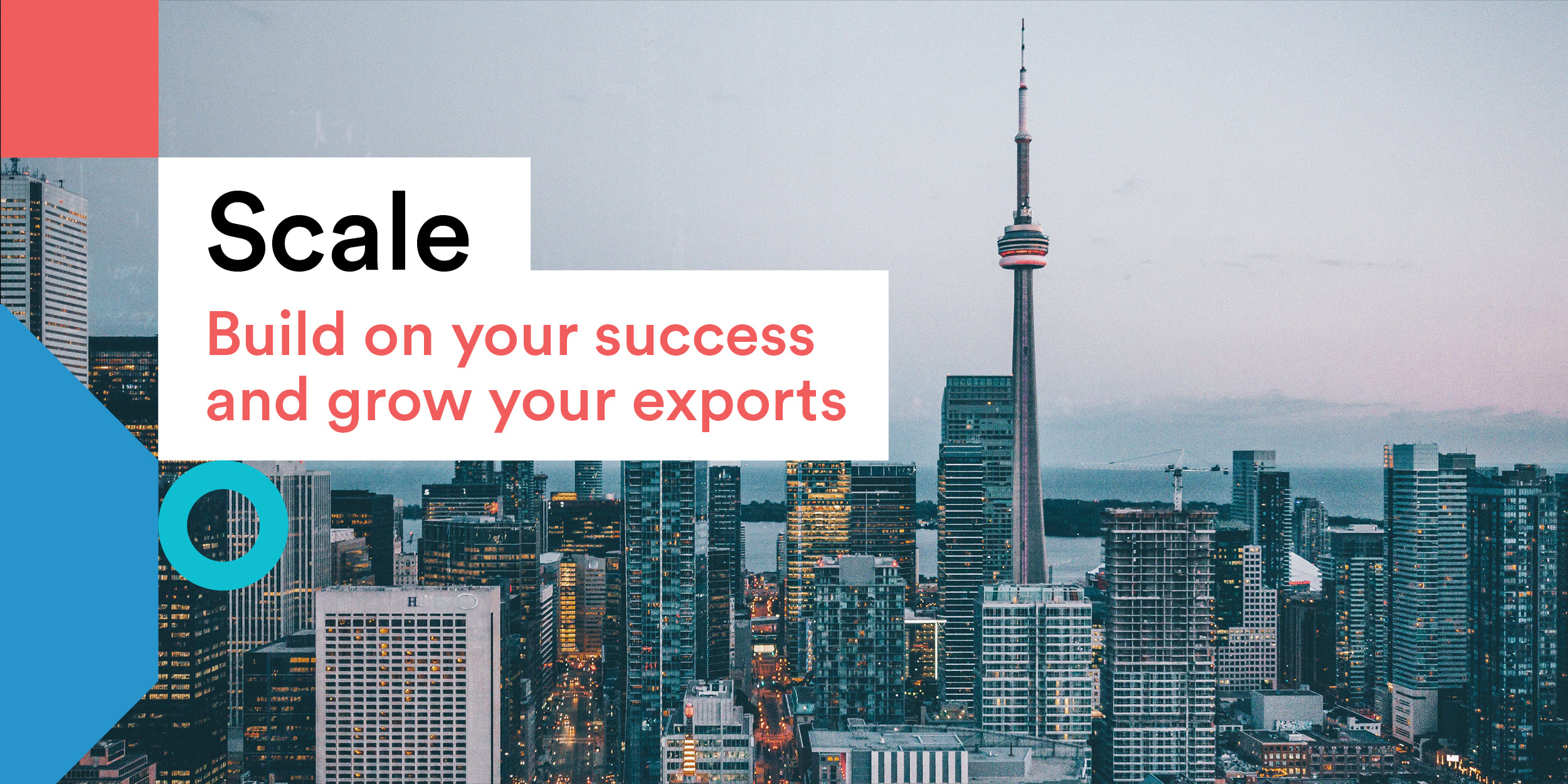 You are now successfully exporting to your first market. Now begin to build on this success and grow your exports.
You are now successfully exporting to your first market. Now begin to build on this success and grow your exports.
You will now have built up a good relationship with the overseas market team and keeping up to date on buyer trends and external factors impacting these trends will enable you to stay competitive.
Factors to consider in your plans to scale exports:
1. Resources
Do you have the necessary resources both in terms of staff and finance to meet the demand of a new market?
2. Capacity
Do you have the manufacturing, packaging, logistics, linguistic capacity?
3. Environmental
Have you considered your carbon footprint; requirements of buyers?
4. Sustainable Growth
How will this impact your current financial standing? Will it strengthen or dilute your position in the market?
5. Adjacent Markets
Is there potential in the adjacent markets where buying patterns, pricing and local regulations may be similar?
How can Enterprise Ireland support your growth?
If you are are already supported by Enterprise Ireland you can contact your Development Advisor here.
The Market Research Centre provides access to world class research databases to help client companies make better, more informed business decisions. Contact the Market Research Centre here.
Enterprise Ireland hosts events to assist companies’ growth plans – See our events calendar for details.
Our Market pages and Going Global guides provide expert insights and contact details for our overseas offices.
Learn how our Exporter Development team can support your growth.

